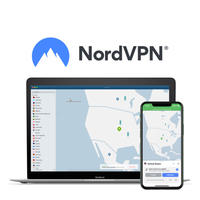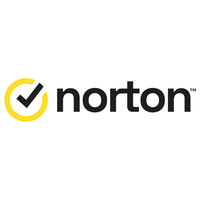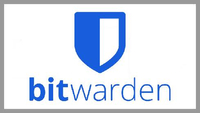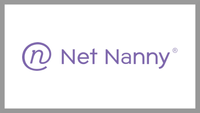How to protect your child on their new laptop
The best ways to protect your child and their device online

The holiday season is perfect for buying your child a new laptop. However, laptop protection on the inside is just as important as buying a travel case to protect it on the outside. With malware and identity theft on the rise, your child’s laptop must be protected from cybercriminals.
Not only can the internet present these cyber threats, but it’s full of content you might not want your child to see.
Cyber security software like parental controls, antivirus, VPN, and a password manager can all be used to protect your child and their laptop, giving them a safe online experience. We’ll be going over why these tools are so important, as well as how you can pick the best ones.
The best VPN for laptops in 2025
A virtual private network (VPN) is a protection tool that encrypts and routes internet traffic through servers across the world. This makes it so that your child can keep their data safe not only from hackers but also from your internet service provider and any government tracking.
This not only helps with their privacy but also enables them to get to geo-locked sites and those your ISP might be blocking. Whether this means accessing US Netflix on a vacation or getting to Google in China, a VPN can do it for you.
Our list of the best VPNs takes an in-depth look at the quality of top VPNs on the market. For a quicker understanding, take a look at the shortlist below:
1. ExpressVPN: get the best VPN free for 3 months
ExpressVPN has stayed on top of most performance comparisons this year. Not only does it offer a child-friendly user interface, but it also has the highest chance of unblocking Netflix abroad. ExpressVPN combines this with a robust suite of security features to make sure your child’s every click is safe.
If you’re uncertain, take advantage of the exclusive Tom’s Guide 3-month free trial.
2. NordVPN: fastest VPN out there
NordVPN reigns as the most widely used VPN. Not only does it have a feature-full security suite with adblock, malware protection, and a data breach scanner, but it wraps it all up in a well-designed UI. However, NordVPN’s biggest asset is its speed, ensuring a zero-lag experience even while streaming.
3. Surfshark: top cheap VPN
Surfshark is the best VPN for budget-conscious customers. While it sits at a mere $1.99 a month, it offers comparable performance to ExpressVPN and NordVPN. While its UI might not be quite as high-quality, it’s still a great choice for everyday use.
While all VPNs are looking to do the same thing, they are not all built the same. The speed, UI quality, consistency, and additional features can make or break your child’s experience.
Get daily insight, inspiration and deals in your inbox
Sign up for breaking news, reviews, opinion, top tech deals, and more.
When picking a VPN, consider the following:
Peripheral Features: Features like a data breach monitor, killswitch, or split tunneling provide an additional layer of security.
Your Child’s Needs: If your child is only using the internet for Google searches and streaming, speed should be your first priority. However, if they’re using their laptop quite a bit every day, consider a privacy-first solution like ExpressVPN.
UI Quality: For your child to get the most out of a VPN, it’ll need to have an easy-to-use user interface.
Cost: Your top choice should be priced so that you hardly even notice it.
While free VPNs are an option, they offer much less in terms of not only performance, but may even be restricted in their use.
How we test VPNs
Our 13 years of experience with all things tech lead to a refined testing method that we use to ensure you’re only seeing top-quality software.
Our in-house team works to set benchmarks, test tools, and analyze the test results for every VPN you’ll see on our site. We then use this data to assess which VPNs are the best fit for your child’s needs. We test each VPN on every operating system it’s available on, prioritizing the Windows implementation. Then, we try to push each feature to its absolute limit.
The biggest factors are encryption quality and streaming performance. We try multiple servers to make sure that each location is working well. Then, we turn on Netflix and monitor the streaming experience for any lag.
Aside from this, we check each VPN’s website every six months and test any new features that come out.
VPN FAQs
Are VPNs safe?
Yes, although free VPNs have had instances of leaked data, none on our site have any such history.
Is it legal to use a VPN?
Certain countries like Turkmenistan and China outlaw the use of VPNs. However, they’re perfectly legal in most parts of the world, with the caveat that any illegal actions done while using a VPN are still a crime.
Are VPNs easy to use?
Yes. These days VPNs are very intuitive. ExpressVPN even has a one-click connect feature that instantly connects you to the fastest server for you. Its Lightway protocol facilitates this, instantly choosing an encryption protocol and ideal server based on your settings.
The best antivirus in 2025
Antiviruses are applications that detect and stop cyber threats from affecting the devices they’re installed on. With cyberattacks growing more complex every day, there’s no operating system that’s safe from them.
Malware in particular can be devastating. Its effects can be anything from making your child’s laptop slightly slower to making it unusable. In addition to malware, more and more malicious actors are using phishing attacks to obtain data that enables them to steal your or your child’s identity. These attacks can also be used to steal money from your bank account.
Take a look at our list of the best antiviruses to learn more, or look at the shortlist below:
1. Bitdefender: Best overall antivirus
Bitdefender Antivirus Plus has an extremely user-friendly interface easy for a child to use. Its malware, identity theft, and phishing protection is top-notch, ensuring your child’s safety. On top of this, its system load is extremely low, and it comes with safe banking tools and a firewall. All of this in a budget-conscious package.
2. Norton: Total peace of mind
Norton has multiple security suites that offer everything you need for total laptop protection. It has parental controls, an antivirus, a VPN, a password manager, and identity theft protection all in one package. If you can afford it, there’s really no better choice.
3. Avast One: Best for gaming
If your child is going to be using their laptop for gaming, Avast One is a great option. Opening immediately in Gamer Mode, this antivirus reduces distractions and increases protection during gaming sessions.
Additionally, this antivirus offers a system scanner and VPN access, as well as a stripped-back free version so you can try before you buy.
The first step to choosing an antivirus is identifying your needs. For example, do you want to cover your whole family, or are you just concerned about laptop protection?
The following factors are great guideposts for deciding:
Parental Controls: If an antivirus has a good parental control suite, you won’t need dedicated software for it.
Threat Database: The best antivirus should maximize the number of threats it’s protecting you from.
Cost: The best antivirus solution is often pricey, while many affordable options can be enough for your needs.
Additional Features: Identity theft protection, data encryption, and the like can elevate your child’s laptop protection.
Removing Viruses: If your child’s laptop does get infected, you’ll want an antivirus that can remove the offending files.
How we test antivirus software
How we test antivirus software
When testing antivirus software, the main criteria we look at are user-friendliness, system load, performance, and protection quality, as well as evaluating any peripheral features the antivirus might have. We place a premium on features that’ll help you with “soft” cyber threats like phishing attacks and identity theft.
To assess system load on both Windows and macOS, we use a custom test that determines how long it takes the device’s processor to match 20,000 names and addresses on a spreadsheet while the antivirus is running. The longer it takes the device, the heavier the system load.
For assessing malware detection, we create an aggregate sourced from three independent labs: AV-TEST, AV-Comparatives, and SE Labs. Each of these labs puts together stress tests containing thousands of cyber threats as well as hundreds of new samples to make sure the software is capable of detecting brand-new malware.
Once our tests are complete, we judge each piece of software in each category. From there, we aggregate the results into a list for your perusal.
To find out more about our in-depth testing process, take a look at our how we test page.
Antivirus FAQs
What is the best antivirus of 2023?
In our testing, Bitdefender leads the charge against malware in 2023. The antivirus is lightning-fast while maintaining an extremely low impact on system resources. The application boasts a 99.4% malware detection rate in third-party tests, only behind a couple of its more premium competitors. Its UI is a masterclass in design, and a child should be able to use it without a hitch. To top it all off, Bitdefender has very reasonable pricing.
For a more in-depth look, read our guide to the best antivirus software.
What does antivirus do?
An antivirus does two things to keep malware at bay:
Scanning each file that attempts to enter your device. The file is then compared to known threat databases and an algorithm that detects suspicious patterns. If the file meets the criteria for malware, it is not allowed entry.
Scanning all of the files on the device and doing the above with them. If a threat is found, it can be deleted or quarantined.
Do I really need antivirus in 2023?
As time goes on, the need for antivirus software has been steadily increasing. Cyber attacks are getting more sophisticated by the day, and your child’s laptop can be a prime target. A good antivirus will protect not only their data but also their identity. Antiviruses also prevent phishing- a cyber crime that has the attacker pretending to be a legitimate individual so your child will willingly give them information.
Is free antivirus enough?
Yes and no. Free antiviruses are almost as good at detecting malware as their premium competitors. However, not only are premium options easier for children to use, but they also offer phishing protection and a variety of peripherals to ensure total laptop protection.
The best password manager in 2025
Children are prone to reusing their passwords, and often not adept at creating very strong ones. Additionally, their data may be stolen during cyber attacks, like the data breach seen by popular online game Roblox in May 2020.
Due to this, your child’s laptop can be a perfect target for cybercriminals. If your child is using a lot of the same passwords across many sites, a single password being stolen can allow hackers to obtain all of their login information. This can also happen if a website your child uses repeated login information for gets breached. Not only will this affect your child, but if you have Google Pay or similar setup, it may even end up damaging your bank account.
The solution to this is password managers. They not only help your child create strong passwords, but they will also remember and autofill them. For an in-depth look at this, you can check out our list of the best password managers, or look below for a quick overview.
Here is a taste of what the best password managers have to offer.
1. Nordpass: the best password manager on the market
Nordpass is the ideal password manager for your child as it offers unlimited password storage, even in its free version. Additionally, Nordpass is available across multiple platforms, as well as across multiple devices. On top of this, the premium version provides your child with data breach notifications and weak or reused password detection.
2. Dashlane: most secure password manager
Dashlane is the password manager for you if intuitiveness isn’t your first priority. It boasts the most robust security features, with a VPN and document storage included in the software. Dashlane is available across platforms and browsers with individual and family plans.
3. Bitwarden: top free password manager
Bitwarden is the password manager for you if you’re looking for a free solution that can give some of its paid competitors a run for their money. While the UI isn’t the best, it has unlimited password storage and device synchronization, as well as two-factor authentication, all for free.
Password managers all offer extremely similar core functions. To help you select the best one for your child’s laptop, you should mainly be looking at supplemental features.
In particular, you should look at four factors when picking the best password manager for you:
UI Quality: For your child to have a pleasant experience with the password manager, it’ll need to be simple to use.
Cost: Your ideal password manager should fit your budget.
Platform Support: The password manager should support the OS of your child’s laptop alongside any other devices they use.
Supplemental Features: Detecting data breaches, an in-built VPN, or file storage can all give the password manager an edge over the competition.
Finally, we recommend picking a password manager that saves your data in the cloud. While local storage is slightly more secure, cloud storage is more convenient and child-proof.
How we test password managers
To test the password managers we’ve looked at to their limit, we used a Windows ThinkPad T470, a Samsung Note 20, and an iPad Pro. We have also tested each one with three browsers: Microsoft Edge, Mozilla Firefox, and Google Chrome.
Our testing includes a stress test where we put a variety of credentials into each password manager. Then, we browse normally to make sure the autofill function is working as intended. We also ensure each of the password manager’s listed supported operating systems are working with the full feature-set.
To learn more about our testing process, take a look at our article on how we test tech.
Password managers FAQs
What is the difference between free and paid for password managers?
Although both options give you similar levels of protection, paid password managers provide more supplemental features. This can be support for multiple devices, easier syncing, a dark web monitor, VPN, or the like. All of these bring paid password managers a cut above free options. On top of that, paid options provide you with the ability to contact customer support if things go south.
How does a password manager work?
Password managers store, save, and encrypt login details so your child can easily use strong, varied passwords online.
Do password managers work with apps?
Yes, modern smartphones can even complement password managers with face ID and biometrics.
Are password managers safe?
Yes. With that being said, password managers are only one step of laptop protection, and they should be supplemented with additional protection.
Can password managers be hacked?
All software is possible to hack. Password managers utilize high-level encryption to make sure your child’s passwords are as safe as possible.
Should you use your browser password manager?
Although the password manager in-built in most browsers is acceptable, it’s not at the same level as paid options. You lose out on supplemental features and may face issues with syncing, such as those present with Apple’s Keychain and Google Chrome.
The best parental control app in 2025
Parental control apps give you a streamlined way to control and monitor what kind of content your child is seeing online. With children accessing the internet younger and younger, it has become very important to safeguard your children against inappropriate content online.
For example, many social media sites are infected with spambots that send adult advertisements to unsuspecting accounts. Parental control apps are there to prevent your child from getting to content you don’t want them to see.
Our list of the best parental control apps gives an in-depth look at your options, and you can find a quick snapshot below:
1. Aura: full privacy suite
Aura includes everything you need to protect your child’s laptop. It has a parental control app, VPN, antivirus, password manager, and even ID protection. Aura is incredibly intuitive and you can download it by simply scanning a QR code with your child’s laptop.
2. Qustodio: best free parental control app
Qustodio is one of the few parental control apps whose free version provides excellent protection. It’s available on a multitude of platforms and gives you the basic features of a parental control app. With that being said, it can be bypassed with a VPN.
3. Net Nanny: best parental control app for filtering
Net Nanny has some great filtering options, with real-time content analysis to make sure a site is safe, as well as a social media focus and screen time monitoring. Apps can also be blocked or restricted.
To pick the best parental control app for you consider the following:
Ease of use: It should be easy to navigate and set up.
Price: Your ideal tool will fit into your budget.
Your Child’s Age: You’ll most likely want a more restrictive app for a young child, and a more lax one with a teen.
Features: Flexibility is king with parental control apps, you want yours to be able to implement as many different measures as possible.
How we test parental control apps
In order to test the best parental control apps we create an account on each platform the app is available on. Then, we test the service for how well it can block different types of inappropriate content. We evaluate features in part on usefulness, in part on how easy they are to get to grips with.
We also consider other factors during our 10-hour testing period involved with each app. We evaluate each tool on a set of metrics including intuitiveness, ease of setup, features, price, performance, and system load.
Generally, we make an effort to compare apps on their performance on the same platform. However, we do note apps that have a jump in performance when changing platforms.
To get a more in-depth look, read about how we test products at TechRadar.
Parental control apps FAQs
Will parental control software block all inappropriate content?
This can vary a lot depending on what you consider inappropriate as well as the age of your child. Your child might be able to get around some parental control features, so it’s paramount you keep your parental control apps updated and take an interest in monitoring your child’s internet habits.
What are the best practices to keep your children safe online?
To keep your child safe online, you’ll need to maintain frequent and open communication. You need to teach your child as much as you can about how to browse the internet responsibly. Furthermore, you should be aware of how they spend their time online and ensure your parental control software is set up to account for that.
What features should I look for in a parental control app?
The main features you should be looking for in a parental control app are the ability to limit screen time, features that block specific sites, apps, or games, and the capability to manage all devices from one dashboard.
Disclaimer
We test and review VPN services in the context of legal recreational uses. For example: 1. Accessing a service from another country (subject to the terms and conditions of that service). 2. Protecting your online security and strengthening your online privacy when abroad. We do not support or condone the illegal or malicious use of VPN services. Consuming pirated content that is paid-for is neither endorsed nor approved by Future Publishing.

Olivia joined Tom's Guide in October 2023 as part of the core Future Tech Software team, and is the Commissioning Editor at Tom's Guide. With a background in cybersecurity, Olivia is interested in how VPNs protect users' privacy, and how they improve online safety. She also regularly uses VPNs to make sure they deliver what they promise, and specializes in testing VPNs with streaming sites.











